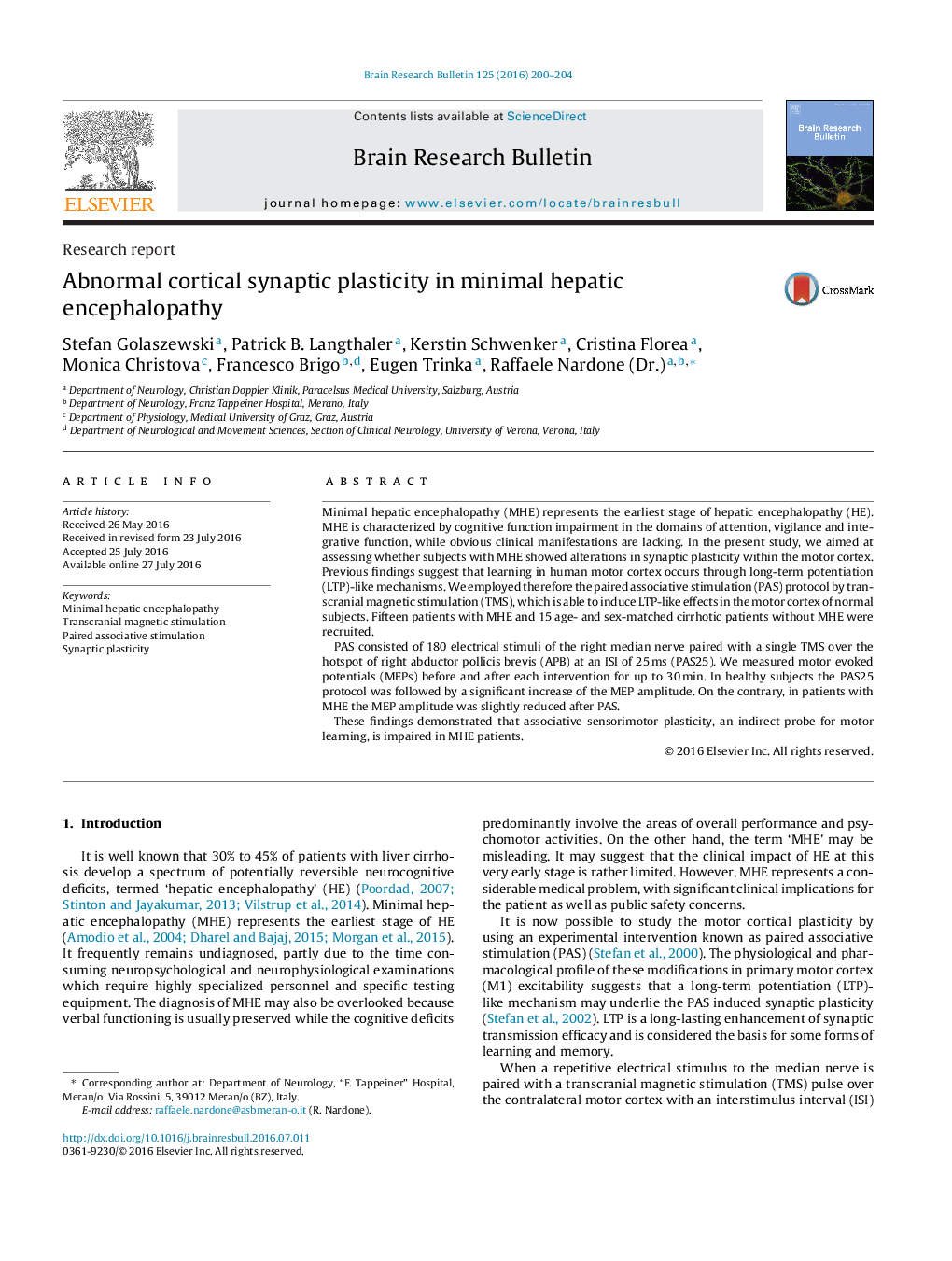| Article ID | Journal | Published Year | Pages | File Type |
|---|---|---|---|---|
| 6261548 | Brain Research Bulletin | 2016 | 5 Pages |
â¢PAS increases MEP amplitude in healthy subjects.â¢MEP amplitude was slightly reduced after PAS in MHE patients.â¢Associative sensorimotor plasticity is impaired in MHE patients.â¢Long term potentiation (LTP) is affected in MHE patients.â¢LTP abnormalities might explain the “subclinical” manifestations in MHE.
Minimal hepatic encephalopathy (MHE) represents the earliest stage of hepatic encephalopathy (HE). MHE is characterized by cognitive function impairment in the domains of attention, vigilance and integrative function, while obvious clinical manifestations are lacking. In the present study, we aimed at assessing whether subjects with MHE showed alterations in synaptic plasticity within the motor cortex. Previous findings suggest that learning in human motor cortex occurs through long-term potentiation (LTP)-like mechanisms. We employed therefore the paired associative stimulation (PAS) protocol by transcranial magnetic stimulation (TMS), which is able to induce LTP-like effects in the motor cortex of normal subjects. Fifteen patients with MHE and 15 age- and sex-matched cirrhotic patients without MHE were recruited.PAS consisted of 180 electrical stimuli of the right median nerve paired with a single TMS over the hotspot of right abductor pollicis brevis (APB) at an ISI of 25Â ms (PAS25). We measured motor evoked potentials (MEPs) before and after each intervention for up to 30Â min. In healthy subjects the PAS25 protocol was followed by a significant increase of the MEP amplitude. On the contrary, in patients with MHE the MEP amplitude was slightly reduced after PAS.These findings demonstrated that associative sensorimotor plasticity, an indirect probe for motor learning, is impaired in MHE patients.
